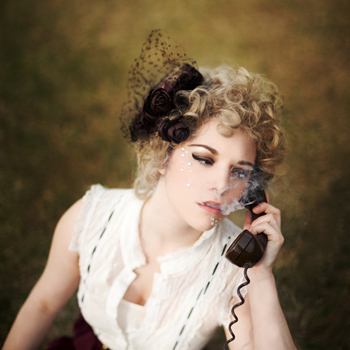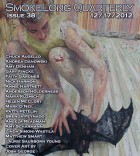How did this story begin?
I read a news story about the L’Aquila earthquake, with a picture of a blue FEMA tent. It was all about how the President of Italy said he would open up his summer homes to the refugees. I thought, how cool. And then suddenly I had this flash image in my head of a girl who was one of the refugees, passing through those marble hallways like a ghost, feeling those palaces filled with emptiness despite the gracious gesture that it was. And from there I started thinking about why she would feel that utter emptiness, having just been saved. Then I wondered where she would have been when the quake happened. I know a little Italian from having visited and an aunt that lives in Rome, so I wanted to let the dialogue have its rightful sound. I actually wrote this story for Robert Olen Butler’s workshop.
There is a tremendous amount of hope in this story, and comes with suspension, a halting of time. Tell me about hope in this story, its suspension.
I think, because I started this story with that flash of the girl passing empty halls, I knew from the beginning that the story would be about the loss of hope, even for someone so young. I knew the story would be about loss. In early drafts of the story, I thought the loss would be about the boys she cared for, her boyfriend and her brother, and her loss would end there. But then, when I put myself on that church floor, and earthquake has just happened as I was praying and I was pinned in the dark by rubble, left to my own thoughts, the more I thought that the girl would have a loss of faith. The caved-in silence would seem the ultimate non-answer to all of her questions, pain, and struggle. To me, the moment she imagines herself passing through the President’s empty palaces would be a moment without time, like when she was trapped under rubble, like when you enter one of those studio booths with the sound-padded walls, and the lack of echo or white noise is disorienting.
Tell me about the father. Tell me about his belief in “the power of being solid and having roots like trees.”
He was a foil character to me. The narrator is undone by her need to grasp for something more. In life, in faith. He was the opposite, the type of person who does something “just because,” who believes that everything is fine because people say it’s fine, who has that leap of faith of believers. He believes that “e viva,” she is alive, despite her deep crisis and her world cracking and running out like an egg. He wants to salvage his daughter and move on. Both are equally heartbreaking, and I didn’t want to have one without the other.
Let’s talk about the narrator. She has a big heart; she loves. Tell me about her love and her hope.
I wanted her to think that she loved Paulo, like everyone young thinks the first person they meet and promises them things is the one they will end up with. She’s got that restless spirit, the kind that is never satisfied with what they already have, and when they get the next thing, it feels ghost-like, empty. Would she have been happy in Rome? I don’t think so. But that restless spirit is also a love for the world that the curious have. I think she loves her father and wants to give him what he wants, his daughter miraculously whole and healthy, but knows that she’ll never be what he wants again. And she feels guilty over the choice she made to leave, a choice that will haunt her. She recognizes her own greed and can no longer take that leap of faith to believe that there is a god answering her questions. I wanted her loss of faith to not come across as a coldness of fact, but a deep spirituality and curiosity for the world that was left unanswered in that crisis. I wanted her loss of faith to come across as both something she now irrevocably believed and something that was a deep loss to her, deeper even than her brother and lover’s deaths. So often people can misinterpret loss of faith has a flippant dismissal or inability to feel something deeper than the superficial world.



 The core workshop of SmokeLong Fitness is all in writing, so you can take part from anywhere at anytime. We are excited about creating a supportive, consistent and structured environment for flash writers to work on their craft in a community. We are thrilled and proud to say that our workshop participants have won, placed, or been listed in every major flash competition. Community works.
The core workshop of SmokeLong Fitness is all in writing, so you can take part from anywhere at anytime. We are excited about creating a supportive, consistent and structured environment for flash writers to work on their craft in a community. We are thrilled and proud to say that our workshop participants have won, placed, or been listed in every major flash competition. Community works.